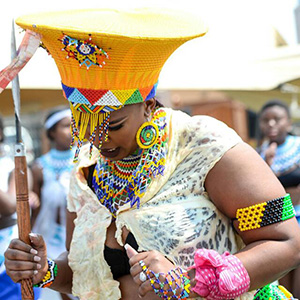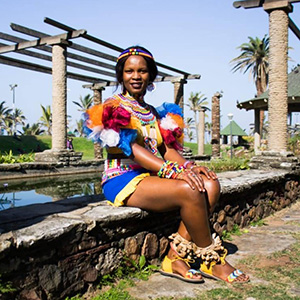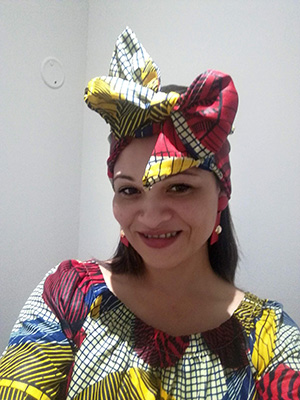News & Events
Unisa KZN celebrates rich and diverse cultures to mark Heritage Day
Heritage Day is one of the most colourful public holidays in South African, and this year’s celebrations were no different. This public holiday is a day in which ordinary people are encouraged to celebrate their cultural traditions in the wider context of the great diversity of cultures, beliefs, and traditions that make up South Africa as a rainbow nation, and also foster social cohesion, nation-building and a shared national identity
History and the birth of Heritage Day
In the past Heritage Day was colloquially called the Shaka’s Day throughout the KwaZulu-Natal (KZN) province. This was done in commemoration of the great King Shaka Zulu, who ruled the Zulu Nation from 1816 to 1828. After 1994 democratic elections, when the proposed Public Holidays Bill before the New South African Parliament omitted Shaka’s Day, there were a few behind-the-scene meetings to resolve this potentially volatile omission. A compromise was reached between Parliament and other parties and the day was given its present title ‘’Heritage Day’’ and became a public holiday.
In his address marking Heritage Day in 1996, former state President Nelson Mandela stated: "When our first democratically-elected government decided to make Heritage Day one of our national days, we did so because we knew that our rich and varied cultural heritage has a profound power to help build our new nation."
Today Heritage Day is the day celebrated by all South Africans from different walks of life. Annually on 24 September various activities are staged throughout the country to commemorate this day to recognise and celebrate the culture and diversity of our nation. South Africans embrace their diverse cultures, ethnicities, stories, music, dance, history and different food to fully commemorate Heritage Day, and to embrace their diverse traditions and the values that contribute to our rainbow nation. Moreover, it is the perfect opportunity for South Africans to foster social cohesion, nation-building and a shared national identity.
Exceptional times call for exceptional measures. This year, as a result of Covid-19, Unisa’s KwaZulu-Natal Region requested their employees and students to share how they celebrate this magnificent historical day during national lockdown by sending pictures and heritage messages.

To me, Heritage Day always brings to mind ukukhehla, a Zulu cultural practice observed during Zulu marriage processes. After the groom’s family has paid the lobola they have to do umkhehlo, it is a transition of a maiden to be a wife. During this celebration, the cow has to be slaughtered at the bride to be family, the groom’s family brings the gifts for the bride and they also have to bring the traditional attire (isidwaba) which means that now she belongs to someone. The groom’s sisters will have to adorn her with red mud called insoyi on her scalp which is a sign of respect to her in-laws. On the day there will be dancing and celebration for both families. From that day the bride will always have to wear isidwaba underneath as there is a belief that she is always surrounded by the elderly women from her husband’s family. This is also a sign of respect to the groom’s family and ancestors.

I will be celebrating Heritage Day with my family by singing Ijadu. Ijadu is a song that a family sing when we are happy or sad. It is sung in any ritual by the family clan. Most families have their own songs. Ijadu is different from Ihubo as Ihubo is slow while Ijadu rhythms are fast. Any member of the family can lead the song during the ceremony.

What a diverse country South Africa is, made up of people from diverse and vast backgrounds, all united by love. I am proudly mixed race and proudly South African.
Ethnicity doesn't define me, I am SOUTH AFRICAN, finish and klaar! I’n looking forward to spending the day with some family and friends, enjoying an Indian curry potjie together.
Happy Heritage Month to all Unisans.
* By Mduduzi Ndunakazi: Communication and Marketing Officer, KwaZulu – Natal Region
Publish date: 2020/09/25
